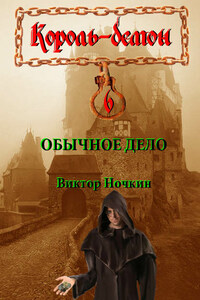Dear Miss Ormerod, —
For thirty years you have been a pioneer in the fields of agricultural zoology and chemistry, and it may most truly be said that no woman has ever done so much as you have to protect agriculture against its natural enemies. In the special departments to which you have devoted your life, it is universally admitted that you are without a rival.
My little volumes do not compete with work so serious as yours, yet you have gratified me with your commendation of their truthfulness, and you have permitted me the pleasure of dedicating to you this one, in some chapters of which I deal with the classes which are most familiar to yourself.
Believe me to be
Yours very sincerely,
ELIZA BRIGHTWEN.
The Grove, Great Stanmore.
June, 1895.
PREFACE
NCOURAGED by the extremely kind reception which has been awarded to my previous books, and by the assurances, which have reached me from the most unexpected sources, that they have been found pleasant and profitable, I am venturing to offer to the same indulgent public a third collection of personal studies of natural history.
I recognise clearly that my little volumes have been received with so much favour, because, in spite of their simplicity and their lack of scientific importance, they are, so far as they go, original. That is to say, I have not much to give, but what I have is of my own gathering. I have not borrowed from other and cleverer writers, but have set down as plainly as I could what I have myself observed and experienced.
It is my privilege to be unusually well placed for the minute study of living creatures, and in that study I find a pleasure so intense that I long to attract others to the same well-spring of pleasure. Unpretending as are the chronicles of the inmates of my house and garden, they are scrupulously true, and every fact that a veracious observer records is a contribution, however small, to our general sum of knowledge.
It only remains to say that a few of these chapters have appeared in Nature Notes and in The Girl’s Own Paper. The rest are now printed for the first time.
“In consecrated earth
And on the holy hearth
The Lars and Lemurs moan with midnight plaint.”
Milton.
AMONGST the many curious animals I had kept and studied, there had never, so far, been a specimen of the monkey tribe. I had always feared that I could not meet their requirements in the way of food and temperature, and that a proper place for such creatures did not exist at the Grove.
However, the offer of a pair of lemurs tempted me into many consultations and much searching amongst the books in the library, in order to find out all that could be learned about the nature of these animals, until I found myself speculating as to whether it would not, after all, be possible to make them happy.
Lemurs are inhabitants of the island of Madagascar, where they live in the woods, feeding on fruits. All accounts agree in describing them as quiet, gentle creatures, very agile in their movements and nocturnal in their habits.
The word lemur was employed by the ancients to describe the unbodied spirits of men, whether beneficent or malignant; the festivals called lemuria were appointed for the appeasing and “laying” of ghosts. The animals received their name from their almost noiseless movements; they must, I suppose, look very ghastly and uncanny as they flit about on the tree-branches at night.
The more I read about them the more it appeared to me that I must not lightly pass by such an opportunity of obtaining rare subjects for naturalistic study. So the lemurs were accepted, and I sent a man to the other side of London to bring them, cage and all, with great care to their new home.
Until I knew their size and something about their requirements I could not very well prepare a place for them, and I reckoned on their living in the cage that they came in for a few days at least after their arrival. What, then, was my dismay when the lemurs arrived to find that they were packed in a small hamper, and that no cage had come with them, as it had been found too large to be conveyed by any cab or other sort of carriage.
Plainly the poor animals could not stay in the hamper, and I had nothing large enough to hold them. They were so timid that I was afraid to let them loose in the conservatory; they might have sprung up to the roof and remained there, where it would be cold, and as I had been very specially warned to guard them against draughts, I was puzzled indeed to know what to do with them. At last a large circular linen-basket was found, which made a temporary home until we could think of some better place in which to keep them.
When the hamper was opened the poor frightened creatures were seen, locked in each other’s arms, gazing at us with round glassy eyes. It was some days before we could really see what beautiful animals they were, since their timidity was so great that, though they would eat bananas out of my hand gently enough, nothing would induce them to come out of their hiding-place and be friendly.








